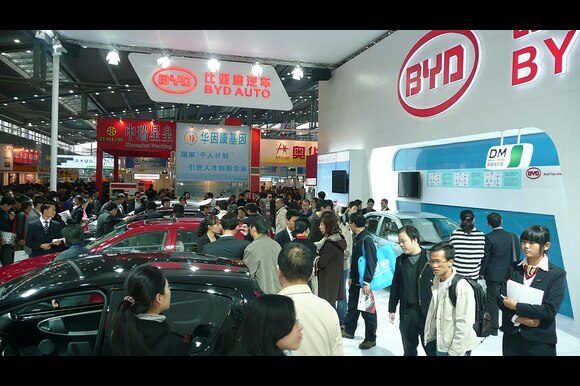Brazilian labor prosecutors have filed a major lawsuit against Chinese electric vehicle (EV) manufacturer BYD and its contractors JinJiang and Tecmonta, accusing them of human trafficking and subjecting Chinese workers to “slavery-like conditions” during the construction of a new factory in the northeastern state of Bahia, according to a Reuters report.
The lawsuit, filed on Tuesday, seeks 257 million reais (approximately $45 million) in moral damages from the three companies, in addition to individual compensation for the 220 Chinese workers who were allegedly exploited. The Public Labour Prosecutor’s Office (MPT) is also requesting that the companies comply with a set of labor regulations and is seeking an additional fine of 50,000 reais per violation, per affected worker.
The factory in question, located in the city of Camaçari, was set to become BYD’s first EV production facility outside of Asia and was scheduled to commence operations in March 2025. However, construction came to a halt late last year after Brazilian authorities uncovered serious labor violations following an anonymous tip-off, the BBC reported.
Prosecutors allege that the 220 Chinese workers lived in overcrowded, unhygienic accommodations, with some forced to sleep on bare bed frames and share one toilet between 31 individuals. The workers were reportedly subjected to grueling hours, denied weekly rest days, and coerced into signing employment contracts containing illegal clauses. The MPT further alleges that workers had their passports confiscated, were subjected to salary deductions of up to 70 percent, and faced steep financial penalties for attempting to terminate their contracts. Under Brazilian labor law, conditions deemed “slavery-like” include debt bondage, degrading working environments, and breaches of human dignity.
In response to the allegations, BYD released a statement affirming its commitment to human rights and labor law compliance. The company emphasized that it follows both Brazilian and international labor standards and is cooperating with labor prosecutors. It added that it would contest the claims through legal channels and reiterated its “zero tolerance” policy toward human rights violations.
Deputy Labor Prosecutor Fabio Leal said negotiations with the companies began in December but failed to yield an agreement. “The workers were brought to Brazil under false pretenses and subjected to unfulfilled promises regarding their working conditions,” Leal stated. “Our case is firmly backed by an extensive body of evidence collected during the investigation.”
Leal also confirmed that the 220 Chinese workers, who have since returned to China, are expected to receive any compensation awarded by the court, with the Brazilian entities required to provide proof of payment. While a court-mediated settlement remains a possibility, any such arrangement would now have to proceed through the judiciary.
BYD—short for “Build Your Dreams”—is one of the world’s leading EV producers. In April, the company overtook Tesla in EV sales across Europe for the first time, according to the BBC. The automaker has been expanding steadily in Brazil, its largest overseas market, where it opened its first plant in São Paulo in 2015 to manufacture electric bus chassis.






